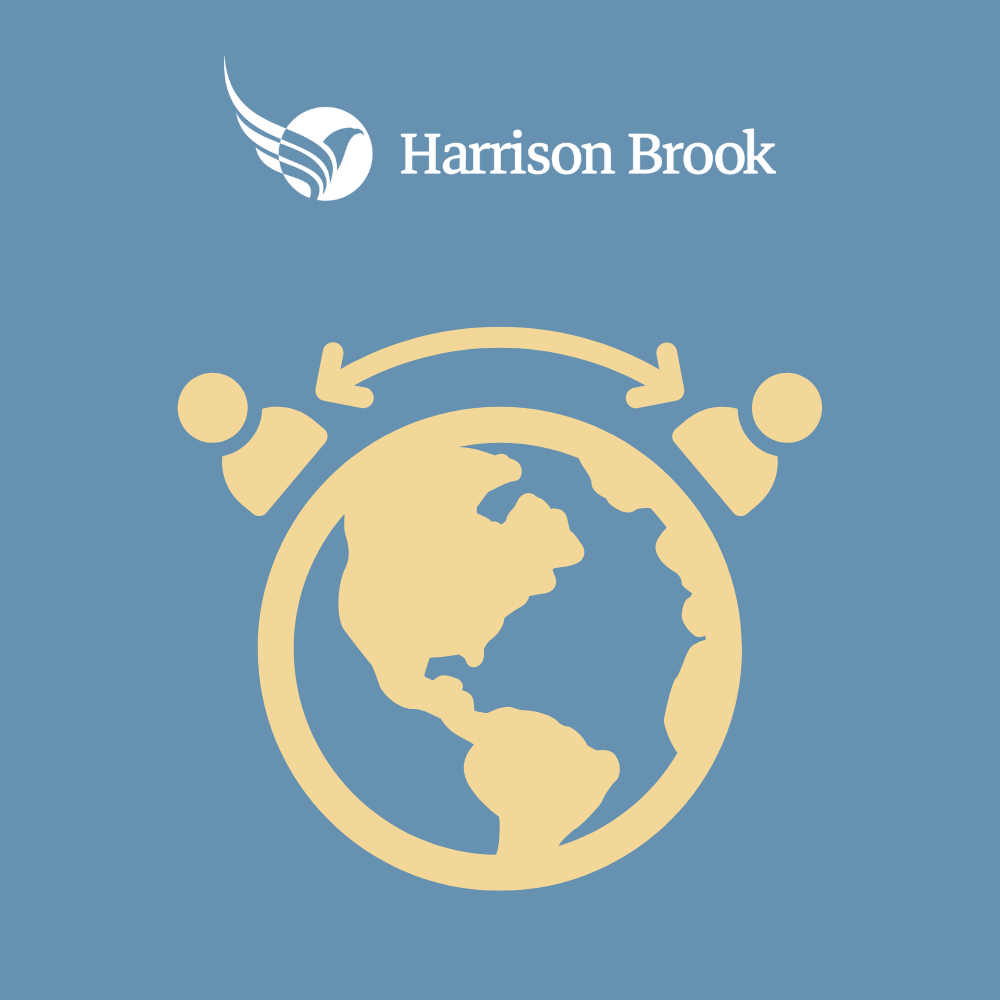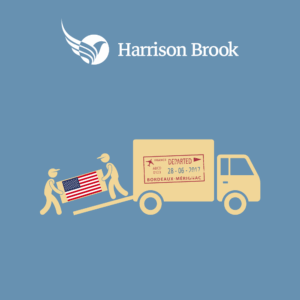
Relocating abroad is an exciting adventure, but for many Americans, one question looms large: what happens to my retirement accounts if I move overseas? Whether you have a 401(k), IRA, or brokerage account, understanding how cross-border living impacts your savings is essential for protecting your financial future.
In this article, we explore what US expats need to know about moving retirement accounts overseas. We cover tax implications, account restrictions, and practical options for managing investments as you build your life abroad.
Introduction to Expatriate Retirement
Retirement planning takes on a new level of complexity when you decide to live abroad. For US expats, managing retirement accounts such as 401(k)s and IRAs from overseas means navigating a maze of tax implications, reporting rules, and cross-border regulations. The US tax system continues to apply to your retirement savings, even when you’re living in another country, making it essential to understand how income tax, foreign earned income exclusion, and other tax laws affect your accounts.
Whether you’re just starting to plan your move or already living abroad, making informed decisions about your US retirement accounts is crucial. Factors like contribution limits, withdrawal rules, and the impact of foreign residency on your retirement savings all play a role in your long-term financial security. Services like Greenback Expat Tax Services can help US expats manage their retirement accounts, stay compliant with US tax laws, and optimize their savings for life overseas. By understanding the rules and seeking expert advice, you can confidently manage your retirement accounts and build a secure future abroad.
What Happens to Your Retirement if You Move to Another Country?
When you leave the United States, your retirement accounts remain subject to US rules. That means you can typically keep your IRA, 401(k), or other retirement accounts open even after moving abroad. However, managing retirement accounts in a foreign country can present unique legal, tax, and financial challenges for US expats, as local laws and regulations in your destination country may impact your options and obligations.
- 401(k) accounts: If you leave your employer and move permanently, you can leave your 401(k) with your former employer, roll it into an IRA, or consider consolidation. You cannot transfer a 401(k) into an offshore account directly.
- Social Security benefits: You can usually claim Social Security from abroad, but some countries restrict payments. The Social Security Administration maintains a list of eligible countries.
- Taxes: Withdrawals from retirement accounts remain taxable in the US. Depending on your new country of residence, you may also face local taxation, as local laws in your destination country can affect the taxation of retirement account withdrawals. Tax treatment can differ significantly in foreign countries, so understanding these differences is crucial, and tax treaties can reduce or eliminate double taxation.
- Pensions: If you have a US-based pension, benefits may continue abroad but payment logistics and withholding rules vary.
Can You Move a 401(k) to an Offshore Account?
Many expats wonder if they can move a 401(k) offshore to simplify finances. The reality is that US law restricts offshore transfers of tax-deferred accounts. Instead, expats usually have these choices:
- Leave your 401(k) in the US. This is the simplest option, though fees and account access may vary depending on your provider.
- Roll over your 401(k) into an IRA account. An individual retirement account (IRA) is generally easier to manage, offers broader investment options, and provides flexibility for expats who may not be able to participate in a US-based 401(k). You can choose between a traditional IRA and a Roth IRA, each with different tax implications—traditional IRAs offer tax-deferred growth, while Roth IRAs provide tax-free distributions under certain conditions.
- Cash out. This option is rarely recommended due to early withdrawal penalties and immediate tax consequences.
Many US expats choose to leave their retirement funds in the US because transferring funds to a foreign retirement account is complex and can trigger significant tax consequences. Additionally, Roth IRAs and Roth IRA distributions may be treated differently in other countries, so it’s important to understand international tax rules before making changes.
You cannot legally move your 401(k) into a foreign pension plan or offshore bank account. Transferring funds to a foreign retirement account is generally not permitted and can have significant tax consequences. The funds in your retirement accounts must remain under US jurisdiction.
What Happens to US Investments if You Move Abroad?
Moving overseas can complicate your investment accounts. Many US brokers, including Vanguard, Fidelity, and Charles Schwab, place restrictions on clients who are no longer US residents. Some firms close accounts, while others restrict trading but allow existing holdings to remain. US investment accounts can still be managed from abroad, but access to your US account may be restricted depending on your broker and residency status.
Here are some common scenarios:
- Brokerage accounts: Many US brokers will not let you open new accounts once you live abroad. Some may also freeze or restrict trading activity. Managing your money and investments from overseas may require additional planning to ensure compliance and access.
- Bank accounts: Keeping a US bank account open is possible but may require maintaining a US mailing address. This can help with managing money while living abroad, such as transferring funds or paying US bills.
- Dividends and capital gains: You remain subject to US tax on investment income. Your new country of residence may also tax these earnings, which makes tax treaties and proper structuring vital.
Navigating Local Regulations
When you move to a new country, understanding the local tax laws and regulations becomes just as important as managing your US retirement accounts. Each country has its own approach to foreign retirement plans, tax-free allowances, and the tax treatment of retirement accounts held abroad. Many countries offer a foreign tax credit or other mechanisms to help prevent double taxation, but the rules can be complex and vary widely.
US expats need to be aware that their new country may have different requirements for reporting and taxing retirement plans, which can impact your overall tax liabilities. For example, some countries may treat US retirement account distributions as tax-free, while others may tax them as ordinary income. Navigating these differences is essential to avoid unexpected tax bills and to ensure your retirement savings are protected. Consulting with a tax professional who understands both US and foreign tax laws can help you make sense of the regulations in your new country and develop a strategy that minimizes your tax liabilities while maximizing your retirement benefits.
Taxation Considerations for US Expats
Taxation is often the biggest challenge when moving retirement accounts overseas. Understanding both US and foreign tax law is essential for expats managing retirement accounts overseas. Here are the main issues:
- US tax remains: As a US citizen, you are taxed on worldwide income, including retirement account withdrawals, regardless of residence. US taxation rules apply to these withdrawals, and expats must be aware of their ongoing tax obligations.
- Foreign tax exposure: Your new country may also tax distributions. Paying taxes in both countries can increase your overall tax liability, so tax planning is crucial to minimize this.
- Tax treaties: Many countries have agreements with the US that prevent double taxation. Proper tax reporting is necessary to benefit from treaty provisions and avoid double taxation. Understanding these treaties is essential for efficient retirement planning.
- Required Minimum Distributions (RMDs): Once you reach retirement age, you must take withdrawals, which are taxable even if you live abroad.
Expat taxes can be complex, and working with a professional can help ensure compliance and reduce tax liability.
Reporting and Compliance
US expats are required to report their retirement accounts and any related income on their US tax return, no matter where they live. This includes distributions from IRAs, 401(k)s, and other retirement accounts, as well as any income generated from these accounts. Failing to meet these reporting requirements can result in significant penalties and fines, making compliance a top priority for anyone living abroad.
In addition to US tax laws, expats must also be aware of foreign taxation and reporting obligations in their country of residence. Some countries require you to report foreign retirement accounts or income on your local tax return, adding another layer of complexity to your financial life. For example, if you receive distributions from a US-based 401(k) or IRA while living overseas, you may need to report this income to both the IRS and your new country’s tax authorities. Working with a tax advisor, such as Greenback Expat Tax Services, can help you navigate these reporting requirements, avoid costly mistakes, and ensure you remain compliant with both US and foreign tax laws. By staying on top of your reporting obligations, you can protect your retirement savings and enjoy peace of mind as you live and retire abroad.
Practical Steps for Managing Retirement Accounts Overseas
To protect and optimize your savings as an expat, consider these steps:
- Consolidate accounts. Simplify your financial life by rolling old 401(k)s into an IRA.
- Review provider policies. Some brokers are more expat-friendly than others.
- Understand tax treaties. Review whether your new country has a treaty with the US to reduce tax burdens.
- Maintain a US address if possible. This can keep accounts open and avoid administrative issues.
- Work with an expat financial advisor. There are specialized services focused on helping expats navigate retirement planning and tax compliance. Professional guidance ensures compliance and maximizes tax efficiency.
- Know how distributions are taxed. For example, in some countries, taxes on retirement account distributions must be paid by the individual receiving the funds. These examples highlight the importance of understanding local tax rules, as treatment of accounts like Roth IRAs and 401(k)s can vary significantly.
FAQs – Moving Your Retirement Account Overseas
Can I legally move my IRA to another country? No. IRAs must remain in the US. You can manage them from abroad but cannot transfer them offshore. You cannot transfer your IRA to a foreign retirement plan or foreign retirement account.
Do I lose Social Security if I move abroad? In most cases, you can still receive Social Security benefits abroad, though there are exceptions depending on where you live.
Will I still pay US taxes if I retire abroad? Yes. US citizens are taxed on worldwide income, including retirement account withdrawals, even if they live abroad.
Can I use my 401(k) to buy property overseas? No. 401(k) and IRA assets must remain in qualified accounts until withdrawal. You cannot directly purchase foreign property through them.
What happens if I cash out my retirement account before retirement age? Early withdrawals from your retirement account before age 59½ may result in a 10% penalty plus ordinary income tax. There may also be additional tax implications if you are living abroad.
Plan Ahead for a Smooth Financial Transition
Moving abroad does not mean losing control of your retirement savings, but it does require careful planning. Understanding the rules, anticipating restrictions, and working with an experienced expat financial advisor will give you peace of mind as you build your future overseas.
At Harrison Brook, we specialize in helping US expats manage IRAs, 401(k) rollovers, and investment accounts across borders. With transparent, fee-based advice, we guide you through the complexities of international retirement planning.
Get in touch
If you are planning to move abroad and want to secure your retirement savings, speak with a Harrison Brook financial advisor today. We provide tailored solutions to help US expats manage investments, reduce taxes, and plan confidently for the future.



